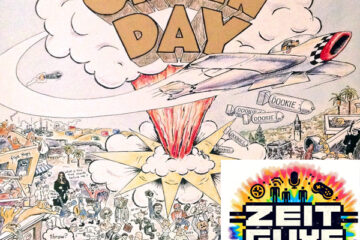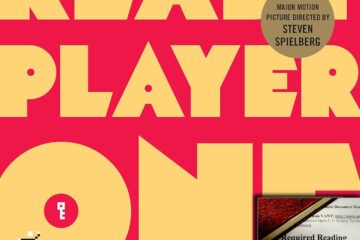A Farmer Refuted by Bell McKee
On the official Hamilton album, recorded by the Original Broadway Cast, and posted by Lin-Manuel Miranda himself in 2015, coming in barely over a minute, the sixth song listed on the album – while a simple song, easily overlooked – provides a lot of insight into New York circa 1776. At one minute and fifty-two seconds, the song “Farmer Refuted” touches on a variety of vital topics and presents the conflicting ideas circulating America during the American Revolution, all while keeping the audience engaged in its quick tempo and overlapping lyrics.
The iconic musical Hamilton takes place in the New World during the American Revolution in the 1700s as previously mentioned. The Play follows a young Alexander Hamilton as he rises in power and knowledge amongst the highest powers at the time including a multitude of founding fathers, future vice presidents, and many other figures seen on modern currency. In addition, the play provides insight into other aspects of Hamilton’s life outside his famed military and economic careers such as his brief childhood and family life. A young man in New York, who came from a small island where he grew up an Orphan until people started to notice his affinity for words. Hamilton constantly is fighting to prove his credibility and that he is the “smartest in the room” (“Nonstop”, Miranda). His constant desire to prove his worth can make Hamilton come off as obnoxious, arrogant, and quite simply rude.
In “Farmer Refuted” this abrupt rudeness Hamilton demonstrates can be seen. While his goal to discuss the issues at hand is appropriate, the way he goes about doing so is rather inappropriate. Hamilton interrupts and speaks over Samuel Seabury, a loyalist attempting to share his thoughts on the Patriot’s ideas, over the course of the song and even gets on Samuel’s “soap box” with him. Seabury’s initial response to try and move his box in front of Hamilton was not exactly appropriate either and both sides treated one another without a shred of respect.
Hamilton may revolve around Hamilton and while the scene with Seabury was passing, it is important to understand who Samuel Seabury was in order to fully understand the song’s title and lyrics. Samuel Seabury was an Anglican Priest from England who remained a loyalist over the course of the American Revolution. Following the Patriot’s victory, a group of Americans elected Seabury Bishop of Connecticut, but he could not be ordained in England because he could not pledge allegiance to the “British crown” as an “American citizen” (Petruzzello). Known for his universal writings which he wrote under the pseudonym “A.W. Farmer” (Petruzzello). The song’s title “Farmer Refuted” serves as a tribute to this pseudonym. In the song, Seabury has a very limited quantity of phrases he uses, repeating the same eight lines over and over.
Over his eight lines, Samuel commands his fellow colonists to ignore the “rabble who scream Revolution” for they “have not [their (the people’s)] interest at heart” (Miranda 0:11-0:17). He tells the crowd gathering his beliefs on “chaos and bloodshed” not being the resolve for their issues, requesting they do not let themselves be “lead astray” (Miranda 0:22-0:27). He concludes his lines clarifying that the Continental “Congress does not speak for [him]” and that he hopes the King has mercy on them (Miranda 0:30-0:40). Seabury may have had a multitude of valuable points to strike down the Patriots with, but he only gets to share his eight lines of disagreement and barely so with Hamilton jumping to talk over him.
Seabury gets through one reading of his stanza before Hamilton speaks over him in favor of the Revolution and shows no respect for Seabury’s point of view nor ideas. Samuel’s lack of variance portrays for the audience the shock and dismay felt by Seabury. During his attempted second repetition, Seabury picks up the box he had been standing on to move it in front of Hamilton in hopes of blocking out the young rebel. This has no affect on Hamilton who simply steps around the box and continues his barrage as Samuel stutters in shock.
As previously mentioned, Hamilton interrupts and speaks over Seabury while the loyalists try to “present [his] ‘Free Thoughts on the Proceedings of the Continental Congress.’” Seabury’s lack of differentiation is meant to demonstrate the Loyalist’s arguments for the crown from a Patriot’s point of view. Hamilton’s rebuttals are all different and he easily plays off Seabury’s words in favor of the Revolution. Along with this variety of different points Hamilton makes, he is also addressing the same crowd Seabury hopes to engage while presenting his argument. When the crowd joins Hamilton’s chorus, “for the Revolution,” Seabury’s feathers are really ruffled because he has begun to realize how futile his “‘Free Thoughts’” (1:17-1:22).
Noticing Samuel’s frazzled voice, the door is thrown open for Hamilton who then proceeds to straight up mock Seabury. Hamilton tells Samuel early in the song that it is “hard to listen to [him] with a straight face” because “chaos and bloodshed” have already happened (Miranda 0:52-0:57). Hamilton condemns Seabury for thinking he can talk about these sorts of thing. Hamilton asks Seabury about Boston where two things have happened in the high-stress, port city in Massachusetts. He alludes to the Boston Tea Party, reminding Samuel how much chaos and loss has already occurred. Hamilton also alludes to the Boston Massacre. Drawing up the Boston Massacre shows how both “bloodshed and chaos” have reached the New Nation’s shores (Miranda 0:55-0:57). Directly after his allusions to Boston, he clarifies his allusions asking Samuel to step back and observe all the Patriots have lost and the costs of those loses. He demands to know how Seabury could look at those losses and talk about Congress.
After Hamilton sees he is getting under Samuel’s skin, he really digs into him. He informs Seabury that his (Hamilton’s) “dog speaks more eloquently” than Samuel (Miranda 1:05-1:08). When Samuel tries to call the Patriot’s actions a “dangerous game” again, Hamilton does not stand for it and continues to dehumanize Samuel by adding on to his dog analogy telling him their “mange is the same” (Miranda 1:09-1:13). Seabury tries to tell the crowd he hopes they experience the King’s mercy when Hamilton butts in asking if the King is in Jersey which was near the center of the thirteen colonies. After finally getting fed up with listening to the same lines Samuel was reading off his pamphlet, Hamilton jumps on top of the box Seabury was on and tells him to stop reading off the paper. Hamilton desires to a debate Samuel’s ideas with him and then gets mad because Seabury “[modulated] the key then [did] not debate with [him]” (Miranda 1:27-1:29).
All in all, the song “Farmer Refuted” provides context and different point of views for the audience to better understand the actions of the Play’s characters.
Hamilton’s “Guns and Ships” by Liv Gonzalez
Both the lyrics and the staging help convey the character of Marquis Lafayette in Hamilton cleverly. Hamilton narrates the life of Alexander Hamilton and the United States’ rise to independence. The story, written by Lin Manuel Miranda, follows the immigrant from the slums of Charlestown to the trenches of the colonies. Along the way the audience meets Lafayette, Burr, and Madison, very influential figures in the making of America.
The lyrics of Hamilton flood the listener with allusions and clever ways to cite historical events. In the song, “Guns and Ships” Burr refers to the New World as “in need of a shower” and trying to “defeat a global superpower” (Miranda). America needed a shower to wake up from the slump of loss in the war due to, at the time, Brittan having the strongest military in the world. He goes on to refer to the colonies as rising from the “quagmire” or a soggy marsh (Miranda). The sogginess is describing how the military rose from grog and swamp to being refined. Then, Lafayette is introduced. Lafayette delivers a few clever lines as well. He raps about making “red coats redder”, an allusion to the red the British soldiers would wear after bleeding as well. He mentions going to “France for more funds”, an allusion to the French’s assistance to the States by providing money and resources (Miranda). The Marquis says he “rendezvous with Rochambeau”. Rendezvous and Rochambeau are excellent uses of writing because it makes an allusion not only to the general who forces Cornwallis’ surrender but also, by using rendezvous we are reminded of Lafayette’s French background. He also alludes to Hamilton’s military background by saying Hamilton is aware of “what to do in a trench”, the area of the battlefield sunken in for cover.
Secondly, the on-stage performance of “Guns and Ships” also speaks to Lin Manuel Miranda’s genius. White light is flashed while Hamilton’s name is mentioned because he is a beacon of light and the hope for George Washington. Also, the set appears to still be in scaffolding because America is still in the building stage. Then, as Lafayette is first introduced, the cast huddles around him almost as though they are a team pitching Lafayette to the crowd and Washington. Lafayette makes his way to the center of the stage and gives fast rap in a French accent because he is from France to assist the Americans. However, as both the song and play go on, he loses his French accent and uses less French words because he is absorbing more and more of the Colonies culture and specifically, language. Next, he moves from center as Washington is introduced because Washington ranks higher than Lafayette and is more respected. Every cast member solutes Washington. Lafayette is the last to salute because he is the most important of the subordinates on stage. Finally, Washington is convinced to write to Alexander Hamilton pleading his participation in the war. The letter is passed on stage through his son, Phillip, his future Mistress, Maria, and his future murderer Burr all foreshadowing different phases of his life.


